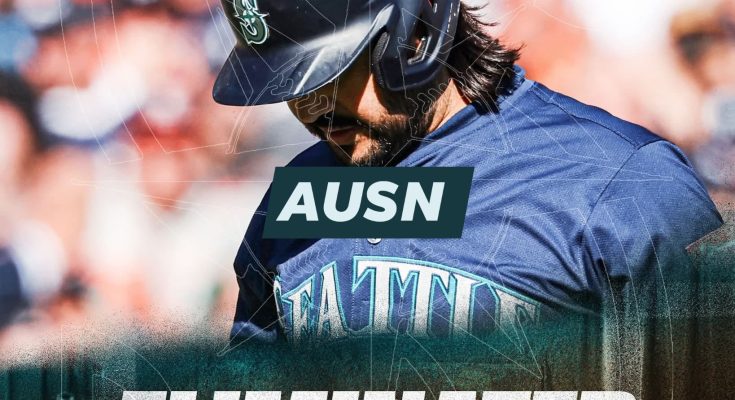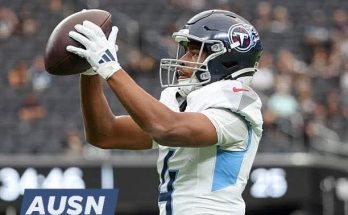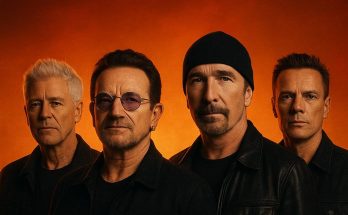The Seattle Mariners remain one of Major League Baseball’s great enigmas—a team rich with individual brilliance, iconic moments, and a fiercely loyal fan base, yet still burdened by the haunting reality that in 49 seasons, they have never made it to the World Series. Since their inaugural season in 1977, the Mariners have seen the game evolve through eras of dominance by other franchises, watched countless stars rise and fall, and even witnessed the franchise itself undergo transformations in management, philosophy, and roster construction. Yet through all of it, the ultimate stage in baseball has remained elusive.
For nearly half a century, Seattle’s relationship with baseball has been one of deep passion, periodic hope, and recurring heartbreak. The Mariners’ journey has featured moments that electrified the Pacific Northwest—like Ken Griffey Jr.’s radiant smile and majestic swing, Ichiro Suzuki’s transcendent arrival from Japan, or the unforgettable 1995 team that saved baseball in Seattle. But as the decades have rolled by, that elusive ticket to the Fall Classic has remained just beyond reach.
The Mariners’ early years were marked by chaos and struggle. The team’s birth was itself the result of a lawsuit—Seattle had lost its first MLB franchise, the Pilots, after just one year in 1969 when the team was relocated to Milwaukee to become the Brewers. When the city sued baseball for breaching its stadium lease, the settlement was the birth of a new franchise: the Mariners. They debuted in 1977 at the Kingdome, a concrete colossus that would become both a symbol of the franchise’s early struggles and a haven for future heroes. But those first decades were brutal. Between 1977 and 1990, Seattle never posted a winning season. The Mariners cycled through managers, front offices, and prospects, yet winning remained out of reach.
It wasn’t until 1989 that a spark finally appeared. That year, the Mariners drafted a 19-year-old outfielder named Ken Griffey Jr., whose talent and charisma would change the franchise forever. Griffey’s arrival signaled hope. His debut season in 1989 showed flashes of greatness, and his smooth left-handed swing soon became the stuff of legend. He wasn’t alone, either—players like Edgar Martínez, Jay Buhner, and Randy Johnson began forming the nucleus of a team that would finally bring respectability to Seattle baseball.
By 1995, the Mariners were ready to announce themselves to the baseball world. That season wasn’t just a success—it was a cultural phenomenon. After years of mediocrity, the 1995 Mariners captured hearts across the Pacific Northwest with their late-season surge to clinch the American League West title. The team’s “Refuse to Lose” mantra embodied their spirit. Down 13 games in August, they stormed back to force a one-game playoff against the California Angels, which they won. Then came the Division Series against the mighty New York Yankees—a series that produced one of baseball’s most iconic moments: Griffey’s slide into home plate to win Game 5, his face lighting up with pure joy as the Kingdome erupted.
That play, immortalized in Seattle sports lore, was more than a win—it was salvation. The Mariners’ success that year kept baseball in Seattle; without that playoff run, relocation to another city might have been inevitable. Griffey, Johnson, Martínez, and Buhner had become heroes, and the city had fallen in love with baseball all over again. Yet, even that magical season ended short of the World Series, as the team fell to the Cleveland Indians in the ALCS.
The late 1990s brought more greatness but also more frustration. The Mariners had the talent—Griffey’s consistent brilliance, Randy Johnson’s dominance, Alex Rodriguez’s emerging superstardom—but somehow, it wasn’t enough. Injuries, trades, and heartbreaks piled up. Griffey eventually asked for a trade and was sent to Cincinnati in 2000. Randy Johnson had left for Houston two years earlier. And Rodriguez, after a dazzling 2000 season, signed a record-breaking contract with the Texas Rangers. In a span of just a few years, Seattle lost three generational talents.
And yet, out of those losses came something extraordinary. In 2001, the Mariners delivered one of the greatest regular seasons in baseball history. With new stars like Ichiro Suzuki—who won both Rookie of the Year and MVP honors that year—Bret Boone, Mike Cameron, and Freddy García, the Mariners tied the MLB record for most wins in a season with 116. That 2001 team was flawless for months, blending contact hitting, defense, and pitching with near-perfect chemistry. The city was alive with belief that this, finally, would be the year. But once again, the postseason proved cruel. After sweeping the Cleveland Indians in the ALDS, the Mariners ran into the Yankees in the ALCS, where the magic ran out. New York’s dynasty proved too much, and Seattle fell in five games. For all their regular-season brilliance, they could not reach the World Series.
That 2001 team remains the symbol of both what the Mariners achieved and what they lost. It was their peak—a demonstration of how good baseball in Seattle could be. But since that season, the team has never come close to repeating that kind of success. In the two decades since, fans have endured long rebuilds, managerial changes, and ownership transitions. There were glimpses of potential—Felix Hernández’s Cy Young-winning brilliance, Kyle Seager’s steady leadership, Robinson Canó’s star power—but none of it culminated in a championship run.
For much of the 2010s, the Mariners became a symbol of near misses. In 2014, they fell just one game short of the playoffs. In 2016 and 2018, they flirted with contention deep into the season only to fade in the end. Félix Hernández, the face of the franchise for over a decade, threw the first perfect game in Mariners history in 2012, yet he never pitched in a single postseason game. “King Félix” became a tragic emblem of the team’s inability to build a winner around its stars.
The playoff drought became infamous. By 2021, the Mariners held the longest postseason drought across all major American sports. When they finally broke it in 2022, defeating the Toronto Blue Jays in a dramatic Wild Card Series, the city erupted in joy. The young core of Julio Rodríguez, Cal Raleigh, and George Kirby represented a new generation of hope. It was the first time since 2001 that Seattle fans could believe again. But just as quickly, the run ended in the Division Series, when the Houston Astros—a divisional rival—ended their dreams.
Despite the loss, that 2022 season rekindled something that had been missing for years: belief. The Mariners proved they could compete again. The following season, they remained in the mix, fighting for playoff position until the final days, but again fell short. Each season seems to bring the same refrain: the Mariners are close, talented, and full of potential—but still not quite there.
The irony is that Seattle has done nearly everything right in recent years. The front office has built around young stars, emphasized player development, and balanced its payroll responsibly. Julio Rodríguez, the charismatic center fielder who became the face of the franchise, has given fans reason to dream big again. The pitching staff, featuring Luis Castillo and a crop of promising young arms, ranks among the best in the league. The pieces are there, but the leap to greatness remains elusive.
For Mariners fans, patience has become both a curse and a badge of honor. Nearly 50 years without a World Series appearance is more than just a drought—it’s a generational burden. Entire families have grown up without seeing their team play for a championship. Every spring brings new optimism, and every autumn often ends in quiet disappointment. Yet through it all, the loyalty remains. T-Mobile Park continues to fill with fans wearing navy and teal, their faith unshaken by time or heartbreak.
Seattle’s baseball story is one of endurance. It’s about a city that has learned to love the process even when the outcome falls short. It’s about celebrating moments—like Ichiro’s 262 hits in 2004, Griffey’s return home in 2009, and Cal Raleigh’s playoff-clinching homer in 2022—even when championships remain a dream. And it’s about the deep connection between the team and the community, one that transcends wins and losses.
The Mariners’ absence from the World Series is a painful reminder of baseball’s unpredictability. Unlike other sports, where star power often guarantees success, baseball demands a combination of depth, timing, and luck. The 2001 Mariners showed that even perfection in the regular season can crumble under postseason pressure. The years since have shown that rebuilding takes time, and that even talented teams can falter in a division as competitive as the American League West.
But there’s something poetic about the Mariners’ unfinished story. Every season feels like another chapter in a long, patient wait for destiny. The day Seattle finally reaches the World Series, it won’t just be a victory—it will be a release decades in the making. The city that once fought to keep its team, that stood by through losing seasons and heartbreak, will finally see its faith rewarded.
As of now, the Mariners remain baseball’s longest-suffering contender without a World Series berth. Yet the franchise’s identity has never been defined solely by its failures. It’s defined by its hope, its heroes, and its unbreakable bond with the fans who believe that someday, maybe soon, the drought will end. The echoes of Griffey’s 1995 slide, the roar of the Kingdome, and the magic of 2001 all linger as reminders of what could be—and what still might come.
Forty-nine seasons have passed without the Mariners reaching the pinnacle of baseball. But every pitch, every heartbreak, and every dream has built a foundation of faith stronger than any championship banner. When that long-awaited World Series appearance finally arrives, it will not just belong to the players on the field—it will belong to every fan who has endured the decades of waiting, hoping, and believing that someday, Seattle’s time will come.



